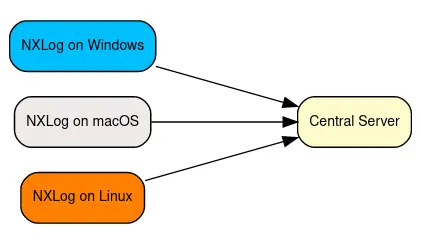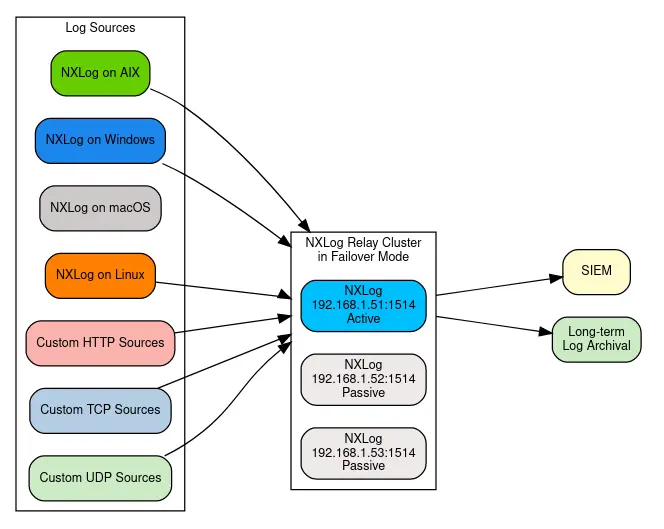The value of log aggregation
There is no denying the importance of log aggregation for multi-million-dollar enterprises worldwide. But just what is log aggregation? And how can it help your organization? Well, log aggregation is the process of standardizing and consolidating your log data from distributed systems across your network into one centralized server. By doing so, you have a unified view of what occurs across your entire IT infrastructure. It not only saves your business time and money, but it can assist data analysts in accurately troubleshooting a variety of security issues.
In the past, data analysts manually collected hundreds of log files across multiple hosts. This proved to be not only time-consuming but also prone to human error. Additionally, it was nearly impossible to detect security threats and resolve them before they compromised the network. Nowadays, data analysts can work with a comprehensive set of centrally located logs. This has made it easier to investigate and pinpoint security incidents, not to mention correlate events across systems, implement scalable solutions, and adhere to compliance regulations.
It’s no wonder why thousands of businesses take advantage of log centralization for their security monitoring needs. It enables your security team to quickly identify anomalies and protect your data assets before an intrusion can occur.
With log aggregation, the advantages do not stop there. In fact, by centralizing your logs, your organization can discover a treasure trove of possibilities. Some of which include:
- Simplified logging
-
Log aggregation not only provides a holistic view of your logs but makes searching and managing information as straightforward as possible. Logs are simpler to work with because they can be grouped or filtered based on specific characteristics from a central vantage point.
- Automated detection
-
Monitoring the security of your enterprise is becoming more prevalent today. Log aggregation tools can actively monitor events and send alerts when an issue is detected.
- Efficient monitoring
-
Aggregating or centralizing your data logs gives you the added benefit of real-time log monitoring. Hence, you can closely observe user behavior and detect specific trends on your network more efficiently.
- Security
-
You are better equipped with the insight needed to fend off network attacks. Not only that, but log centralization is a crucial requirement for meeting many IT security standards and compliance regulations.
Given all these advantages that log aggregation provides, surely organizations like yours need a powerful log management solution capable of aggregating logs at an enterprise scale from practically any system and any log source. In other words, such a tool needs to be flexible enough to work with a myriad of platforms, solutions, and log formats. Additionally, it must be able to route events from such distributed systems in real-time, reliably, and securely. This is where NXLog comes in.
NXLog is a log collection tool that can aggregate logs from any host within your organization, regardless of platform. This is all due to NXLog’s distributed architecture. With such an architecture, clients can share resources without server intervention and thus significantly improve network throughput and performance.
Another valuable feature that NXLog offers is its unparalleled interoperability with third-party solutions, especially SIEMs. This means your organization will not need to lose any of its investment in its current third-party log management software. This allows you to focus entirely on log collection since there won’t be any need to change your current infrastructure to deploy NXLog.

Another advantage of NXLog’s distributed architecture is fault tolerance. Failover mode is a standard feature in every agent. What’s even better is the simple, intuitive configuration of an active-passive cluster of NXLog agents. This configuration is completed in the sending agent itself. The cluster it defines requires no failover configuration at all and does not even need to be aware that it is part of a failover cluster. When configured, this robust, baked-in failover functionality ensures that logs are reliably forwarded to their destination and that your security team has the vital logs they need for analysis.

Log aggregation has certainly come a long way in the last few years. And with this new approach of log centralization, so have the capabilities of NXLog. A solution that uses minimal system resources due to its modular design, scales to the logging needs of even the largest enterprises, yet can exceed the log data transfer rates of most of its competition.
With its unique distributed architecture, it can act as a server and receive logs to be archived locally. Or, with a minor configuration change, it can act as a client, collecting events from its host, then sending them in real-time to a remote SIEM for ingestion. But even more flexible than either of these modes is its ability to function as a relay agent, collecting log data from other NXLog agents, aggregating the events, and forwarding them to a SIEM or some other log analytics system for analysis. When it comes to logging, no matter what your specific needs are, NXLog has all your bases covered.
